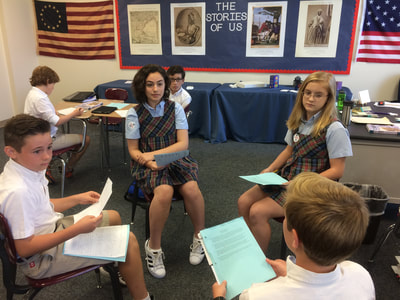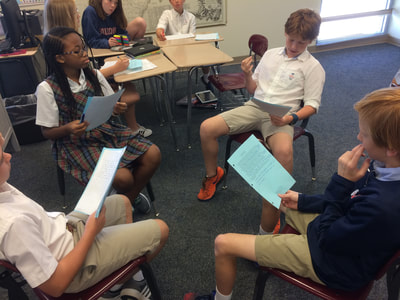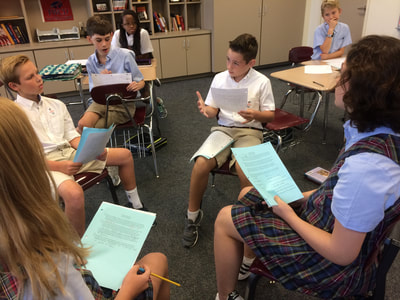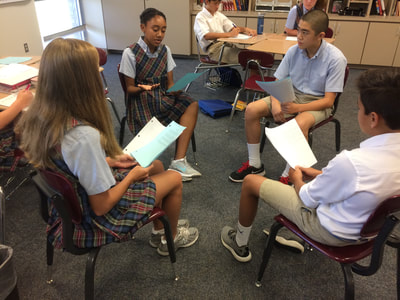|
Gamification and game based learning is getting significant love in schools around the world. Used correctly, games can teach academic concepts and skills in ways that students who struggle to learn by traditional methods can more easily grasp. Games can also be great ways for students to demonstrate what they’ve learned. Gamification brings an instant increase in student engagement that is hard to replicate.
One favorite game in my History class is Socratic Smackdown (instructions, materials, and tutorial on the right hand side of the page) designed by the Institute of Play. It takes the great discussion and questioning method of Socratic Seminars to another level. I have done it for a couple of years now and immediately after finishing each one, students are asking when our next Smackdown will be. Socratic Smackdown helps me to further develop Global Competency in my students. The game develops communication skills and exposes students to different perspectives. If you choose a global topic to be discussed in the Smackdown, you deepen students understanding of issues facing the world and foster an interest of others and issues beyond their zip code or borders. The goal of the game is to be the team that scores the most points using different discussion strategies. Students who are not actively debating in a round will be engaged by being scorekeepers using the scorecard template. This is perhaps my favorite part of the Smackdown. In all the times I’ve done this, I’ve never found a student disengaged or not paying attention. This year, I did my first Smackdown the second week of school. The first is always the most awkward because students are learning discussion skills, how to have a deep conversation, and how the Smackdown format works. However, each Smackdown shows students making significant progress in their abilities to formulate arguments, ask and answer deep questions, and comfortably discuss controversial topics. Here’s how my Socratic Smackdowns work:
If you have any questions about how I run my Socratic Smackdowns, feel free to post your question or email me. If you have tips on doing similar activities, please post them for other teachers in the comment section. -Stephen [email protected] "This blog is not an official U.S. Department of State blog. The views and information presented are the grantee's own and do not represent the Teachers for Global Classrooms Program, IREX, or the U.S. Department of State."
0 Comments
Leave a Reply. |
AuthorStephen Blan teaches US History at Fort Worth Country Day in Fort Worth, TX and is a 2015 Teachers for Global Classrooms Fellow. Archives
September 2017
Categories
All
|




 RSS Feed
RSS Feed
